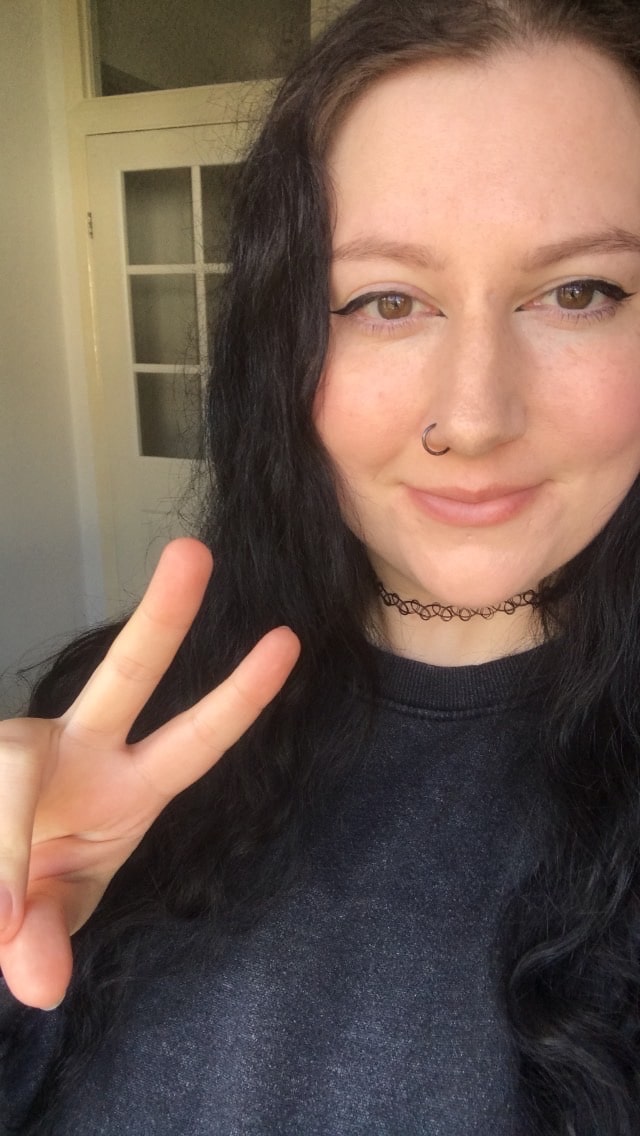30 Journal Prompts for Inner Child Healing and Shadow Work
Inner child healing is a key part of shadow work and using journal prompts to heal your inner child is a great way to start your journey.
Oftentimes, we find ourselves focusing too heavily on the future; worrying about what’s to come and how we’ll get there.
Personally speaking, I know that fretting over things that haven’t even happened yet is one of the main sources of my anxiety!
Similarly, if we spend our days living in the past, we can get caught up obsessing over things that have already happened, but that we can’t change.
While we should therefore ideally focus on the present rather than dwelling on the past or future, revisiting certain life events, feelings, and trauma that occurred in our childhood can help us do precisely that. It can help us heal and be more mindful of our lives and bodies exactly where they are now, increase self-awareness, and grow.
Like most of our shadow work, healing your inner child isn’t always easy. We may be forced to revisit uncomfortable events and emotions from our past. However, by feeling them, unpacking them, learning about ourselves through them, and nurturing our inner child, we can find a place of contentment and balance.

Journal prompts for healing your inner child are a great place to start as they encourage you to delve into parts of your mind that you’ve buried through shame or denial. They probe and – quite literally – prompt you to sort through your thoughts, take a step back from them, and even look at them through an analytical, objective lens.
You can then go about looking at ways to nurture your inner child and coax your inner child out of hiding, if you find getting in touch with them a little difficult.
What is your ‘inner child’?
Your inner child isn’t just a colloquialism for the child-like or ‘immature’ parts of yourself that still enjoy to take part in activities that made you feel good as a kid, although this is part of it.
It’s a part of your unconscious mind that has been absorbing and attempting to process events, emotions, and even trauma from when it was first capable of doing so.
Your upbringing, cultural background, parent’s values, and life events all play a part in how your inner child is formed, and also have an affect on who you are as an adult. This is why learning about your inner child is such a massive part of shadow work.

It can affect how you process emotions, deal with situations, your mental health, and how you treat others.
Our inner child is who we once were at our core. Our purest form – AKA the puer or puer aeternus, as Jungian psychology refers to it.
Carl Jung believed our inner child to be extremely important when understanding what brings us joy and creativity. In fact, he theorised that puer aeternus is one of our archetypes – a core part of our unconscious being.
What is inner child healing and why is it important?
Healing our inner child helps us essentially re-parent ourselves and soothe wounds that never truly closed.
It helps us express ourselves and learn about a deep part of ourselves that’s crucial for our self-development.
Our inner child helps us:
- Express joy
- Be mischievous
- Get creative
- Feel hope for the future
However, our inner child finds it difficult to deal with stressful situations, events, and trauma that may have occurred throughout our life. It simply doesn’t have the tools or capacity.
This is another reason why healing our inner child is an important part of shadow work. If we stay in this child-like place, we may experience something known as Peter Pan syndrome, where we refuse to grow up, face responsibilities, and deal with our emotional baggage. We don’t acknowledge our shadow parts and, to an extent, live in denial.
According to Jung, the shadow of the child archetype (or puer aeternus) is the senex, which translates to ‘old man’ in Latin. The old man is:
- Always in complete control
- Structured
- Disciplined
- Rational
We may have experienced terrible things as a child, been forced to mature and grow up too fast, or been scolded for acting ‘childishly’ when we were little, making it difficult for us to get in touch with our inner child now that we’re adults.
The old man needs to be able to relax and allow himself to experience more child-like wonder, while the child needs to learn discipline and responsibility.
Healing our inner child is important in order to grow as a person. We soothe, nurture and heal our inner child so that we can be measured and ordered, while still allowing themselves to be creative and hopeful.
We can also heal from wounds that still hurt us to this day and move on in a healthy way.
This is why I put together my Inner Child Healing Workbook.
How do you heal your inner child through journaling?
As human beings, we have certain needs. As children, we need guidance and support to fulfil these needs as we’re not capable of doing it ourselves.
We also need to be nurtured and loved.
Unfortunately, not everyone has even the most basic requirements as a child met. Those who were supposed to love and nurture them didn’t.
We therefore need to learn how to re-parent ourselves. We need to learn how to self-soothe, practise self-care, and nurture our own inner child in order to heal and grow. We must also allow ourselves to embrace our inner child, have fun, and learn to experience hope and forgiveness.
Journaling is an effective way to start healing your inner child, as it encourages you to really listen to that part of your unconscious without judgment and input from other people.
Writing down our thoughts also helps us become more self-aware and introspective so that we can gain a greater understanding of who we really are at our core.
There are a few ways you can heal your inner child through journaling:
- Write a letter to your inner child
- Write down activities you enjoyed as a child and make time for them
- Write down affirmations to help heal your inner child
- Schedule inner child-focussed self-care
- Write a journal entry from your inner child’s point of view
- Use journal prompts for healing your inner child
Using journal prompts that focus on getting in touch with your inner child and healing them is helpful for beginners because it can get your creative juices flowing and open your mind to journaling in general.
Journal prompts for healing your inner child
If you’re struggling with knowing what to write in your journal when it comes to the child part of your unconscious, I personally recommend using prompts, like the ones listed below.
- Describe what your childhood was like in one sentence. Was it generally happy? Anxious? Stressful? Sad? Do you remember?
- What characteristics or traits did you have as a child that you still have? Which characteristics did you have but ‘grew out’ of? Why was this? Do you remember? Were you ever told to hide certain parts of you that others deemed ‘childish’? How does this make you feel now?
- What’s one thing you wish you could change about your childhood?
- What was your relationship with your parents like as a child? What’s it like now? How has it changed? How do you feel about this?
- Write about an event from your past (that’s not traumatic) and consider how you reacted. How did you move past this as a child? Why do you think you can remember this so vividly? How has it shaped you as an adult?
- If you were sitting in front of your child-self right now, what would you say to them? How would you treat them? What do they look like? How to you view them? Does this affect how you look at yourself now as an adult?
- List five activities that you loved taking part in as a child.
- Where was your ‘safe space’ as a child? Did you have one? How does remembering it make you feel? How does your ‘safe space’ as a child translate into adulthood?
- List three activities you enjoyed as a child that you can incorporate into your adult life. How do you plan to do this? Do you need to adapt these hobbies to make them more appropriate? Schedule one into your journal.
- Think about your favourite childhood movie or TV show. How did it make you feel? What made you love it so much? Do you revisit it now? Why or why not? How does it make you feel now?
- Who did you look up to as a child? Did you have an idol? What made you look up to them? What characteristics of theirs do you wish you possessed as a child? As an adult, do you possess them now?
- What did self-care mean to you as a child? What were your favourite ways to practise it – albeit unknowingly – when you were young? How can you incorporate this self-care into your adult routine?
- Other than your parents, who were you close to as a child? Write about them. Are you still close? What happened?
- What are two affirmations you wish you could have told yourself as a child? How would repeating them now make you feel?
- What did you want to do or be when you were older? Have you fulfilled that? Did your dream change?
- How did you deal with emotions when you were younger? How did your caregivers encourage you to express yourself when upset, angry or excited? Were you taught to suppress these emotions?
- What do the terms “immature”, “childish”, and “childlike” mean to you? What connotations do they hold?
- Do you struggle to get in touch with traits often associated with Jung’s child archetype? If so, which traits? How does attempting to get in touch with these make you feel?
- What’s one way you can make yourself feel warm, safe and nurtured today? How can you make time for yourself?
- Do you find yourself identifying with certain traits possessed by the old man archetype – the child’s shadow? If so, which traits? Or does getting in touch with this side of you not come naturally?
- What situations trigger what you consider to be a childlike response in you? When upset or under pressure, how old do you feel? Did something happen at this age to cause this reaction in later years?
- Write about three things from your childhood that you’re grateful for.
- Write about a time that someone let you down as a child. Have you forgiven them now? Or do you carry that hurt with you?
- Write about a person who hurt you growing up. What did they do? How did you react and heal at the time, if at all? How do you feel about it now?
- What does ‘forgiveness’ mean to you?
- What was something you were scared of as a child? Are you still afraid now? What is something that you’re afraid of now? Could they be linked?
- List a few of your favourite things – EG favourite colour, book, season, food – as a child. How have these changed?
- How can you nurture your creativity now as an adult?
- What are you feeling hopeful for right at this moment in time?
- How can you structure and plan your days better? Is this something you struggle with? Have you always struggled?
To get started on your inner child healing journey, check out my 80+ page inner child workbook, which helps beginners do precisely that.

A witchy ray of sunshine who loves to help others on their journal journey. I’ve been journaling since childhood and have since gone on to earn a degree in English and a diploma in Shadow Work. I love my plant babies, yoga, and anything spooky. Find out more on my about me page.